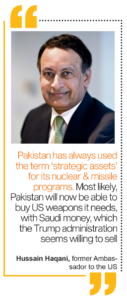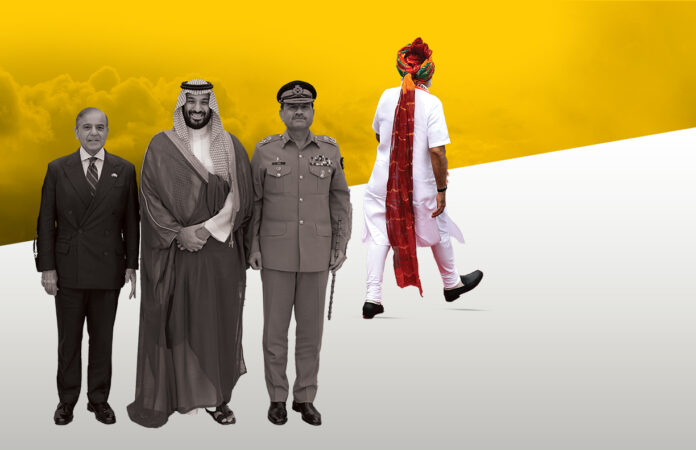The Gulf Arab Countries are threatened. Nothing indicates this more than the speed with which the oil-rich leaders of the Arab world have been rushing to Pakistan for protection after Israel launched missile strikes on Doha. It barely took a week after the attack for Saudi Arabia, the beating heart of the GCC and Arab-American cooperation, to sign a mutual defence agreement with Pakistan.
It is difficult to overstate the importance of this agreement. This is the first official mutual defence pact between two Muslim countries. Yes, there has been deep military cooperation within the Muslim world since modern nation states emerged after the second world war. But even at the height of the Ummah fervor of the 1970s no official agreement was signed declaring an attack upon one would be considered an attack upon the other. (Egypt and Syria did briefly form the United Arab Republic, but that lasted all of three years.) The defence pact is probably Pakistan’s most significant military and diplomatic initiative of the past half century.
It is important enough that even the leadership of the Pakistan Tehreek i Insaaf, one of the largest parties in the National Assembly, has come out in support of it. For anyone that has been watching Pakistani politics since 2023, that alone signifies how important this pact is. It is an achievement that has a mandate and is being widely celebrated not just in Pakistan but also in Saudi Arabia and, to a lesser extent, in other parts of the Muslim world.

The alliance will also be closely watched by the rest of the world. Already Pakistan and Saudi Arabia have indicated that they would be more than open to other Gulf Cooperation Council (GCC) members either joining their pact or signing similar agreements with Pakistan. Perhaps no country will be watching this more closely or with more trepidation than India. It has just been over four months since India launched attacks into mainland Pakistan, launching a four day military engagement that was only stopped by the intervention of the Trump Administration.
The Indians, to their detriment, learned that Pakistan can put up a fight. That lesson was the only thing they walked away with from the conflict. But India’s concerns about Pakistan’s defence pact with Saudi Arabia will not be military. It will be economic. Pakistan has proven it is capable of defending itself from Indian hostility. The true strength of this pact for Pakistan will not be Saudi jets or military assistance but rather the economic pressure Saudi Arabia and indeed the larger Gulf region can exert upon the Indians.
And when it comes to the Indian economy, the Gulf Arab States have considerable leverage.
The Russian Gambit
The role of the Gulf countries in the Indian economy is massive. The GCC is India’s single largest trading partner with volumes of $161.23 billion in 2024 The content in this publication is expensive to produce. But unlike other journalistic outfits, business publications have to cover the very organizations that directly give them advertisements. Hence, this large source of revenue, which is the lifeblood of other media houses, is severely compromised on account of Profit’s no-compromise policy when it comes to our reporting. No wonder, Profit has lost multiple ad deals, worth tens of millions of rupees, due to stories that held big businesses to account. Hence, for our work to continue unfettered, it must be supported by discerning readers who know the value of quality business journalism, not just for the economy but for the society as a whole.To read the full article, subscribe and support independent business journalism in Pakistan









